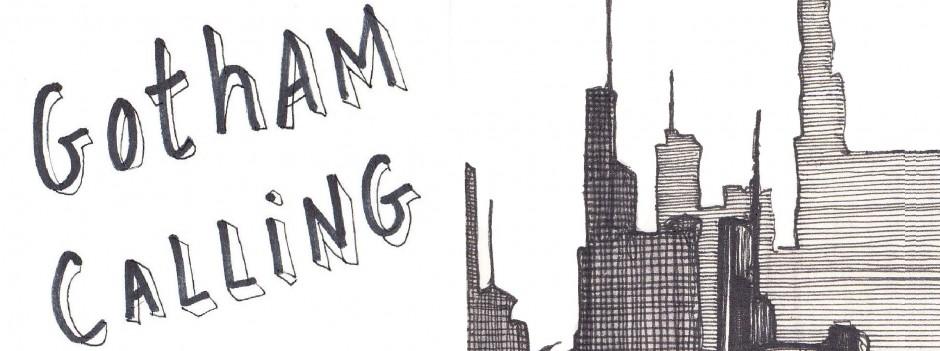Secret agents and international intrigue have really come back with a vengeance in the past decade or so. The War on Terror and, later, the renewed tension between the West and Russia seem to have stimulated the public’s appetite for this sort of material, now updated to an era where surveillance technology makes some of the old spy-fi devices appear quaint in comparison.
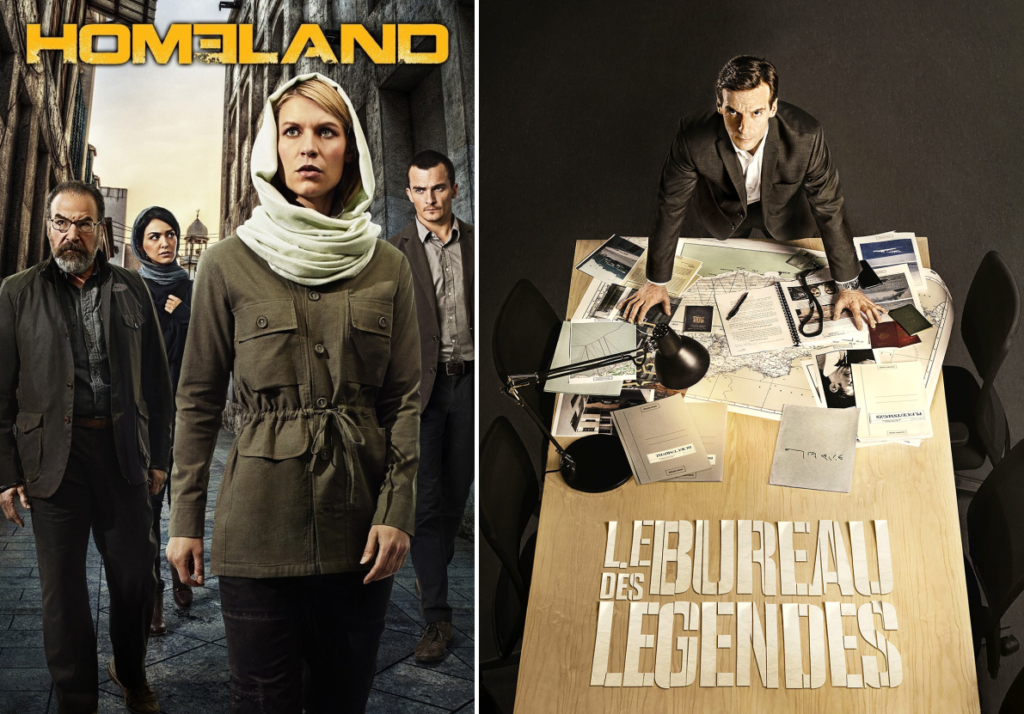
When it comes to smart entertainment that mixes intricate plots, engaging characterization, and ripped-from-the-headlines geopolitics, the biggest juggernauts were Homeland (2011-2020) and The Bureau (2015-2020). I was particularly fond of the latter, a neo-noirish narrative about a division of the French Secret Services specialized in cover stories, or ‘legends,’ weaving a tapestry of missions involving a million different political forces in the Middle East.
Elegantly emanating le Carré-esque reservation and authenticity, The Bureau’s main emphasis was on the low-key aspects of spycraft (dissimulation, psychological manipulation, technological surveillance), although this was often tied to the violence on the ground, particularly in the war against ISIS. In fact, the action became more visually daring as the series progressed, including a number of remarkable set pieces (the Israeli hit squad in the hotel corridor, the wall-breaking operation through a ravaged Mosul…). Things got especially grim in the final season, with a string of crushing moments and broken characters (yet also much more sex).
It is worth noting that a few smaller productions were just as solid, like 2021’s Vigil, which pursued a mystery set in a nuclear submarine. Alas, the second season (a new mystery, now largely set in a Persian Gulf base and revolving around combat drones) was much less impressive…
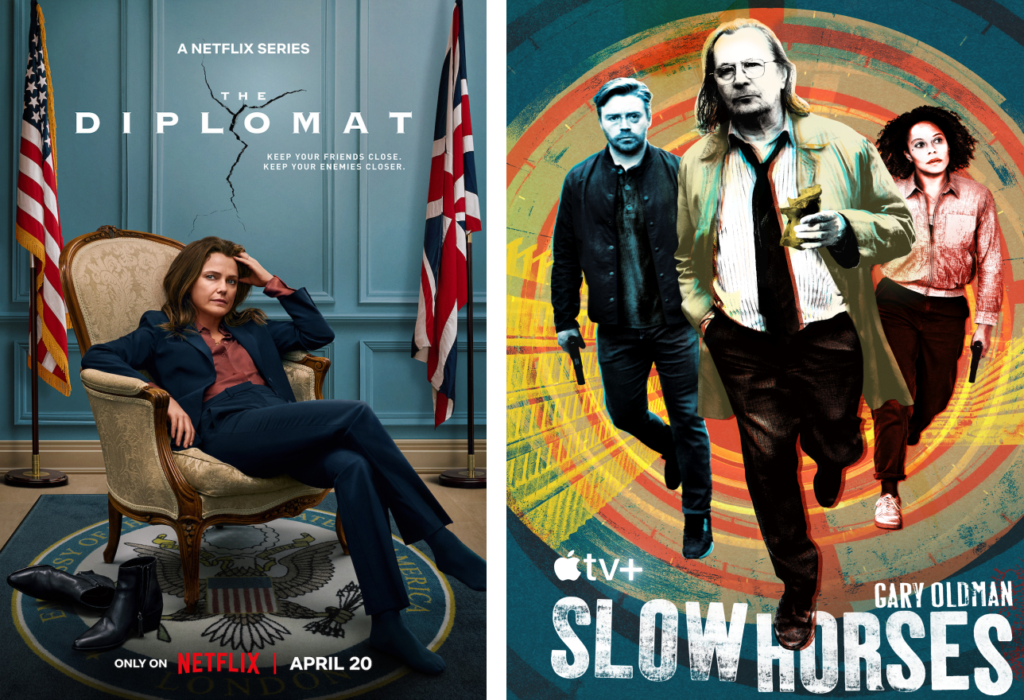
At the moment, the finest specimen of this breed is probably The Diplomat, which revolves around the US ambassador in the UK trying to prevent the British from going to war in the Middle East (a nice historical twist, cleverly playing on post-Iraq/Afghanistan wars, post-Trump, and post-Brexit anxieties). The Diplomat was created by Debora Cahn, who brings in the craft she honed scripting The West Wing and Homeland into yet another political thriller that takes for granted the audience’s familiarity with government workings and contemporary hot topics while pitting a bunch of charismatic characters against each other in complex games of diplomacy and intelligence (in both senses of the word). Geopolitics have really caught up with this one, though, so I’m guessing the next season will take place in some kind of alternate reality where their ersatz-Prigozhin can remain alive and where genocidal war in the Middle East remains a looming threat rather than a consummated fact.
If The Diplomat has more of a sitcom vibe, the same goes for another one of my favorites among the latest crop of spy shows. Slow Horses focuses on an MI5 unit made up almost entirely out of second-rate agents who have screwed up in the past. To be sure, with source material as good as Mick Herron’s novels, all you have to do is try to stay relatively faithful, breathing life into the various eccentric characters and witty dialogue, even if necessarily sacrificing the text’s droll descriptions (‘The minister at the time had been every senior spook’s wet dream: spineless, indecisive, terrified of bad press, and anxious never to be caught in the vicinity of a decelerating buck.’). Still, it would be unfair to reduce the show to a serviceable adaptation – it has developed its own groove and rhythm (helped by Mick Jagger’s absolutely kickass theme song). It also has a stellar cast, starting with Gary Oldman as the team’s outrageously abusive boss, Jackson Lamb.
Since Oldman played the spymaster George Smiley in 2011’s film version of Tinker Tailor Soldier Spy, it is hard not to see his performance on an intertextual level – Lamb is like a dark reflection of Smiley, more vulgar and certainly less diplomatic, but likewise exhibiting the sharpness of an old cold warrior. And I reckon it’s not the only nod to the genre’s past: the second season opens in a porn shop (like Conrad’s Secret Agent) and contains a leg-torture scene (like Inglourious Basterds), even though it drops much of the novel’s Die Hard-ish subplot.
That season, in fact, does more streamlining than the first one, trailing further away from Herron and actually replacing a few key twists. Overall, I don’t mind: the changes actually made it a more stimulating viewing experience for me, as I had read the book (Dead Lions) and so I got to enjoy a story with some extra surprises. That said, I did miss the novel’s lovely denouement, where sleeper agents become a sort of metaphor for immigration and integration. (It was also a pity that the next season omitted the very final scene of the third novel, Real Tigers, one of Lamb’s most badass moments…)
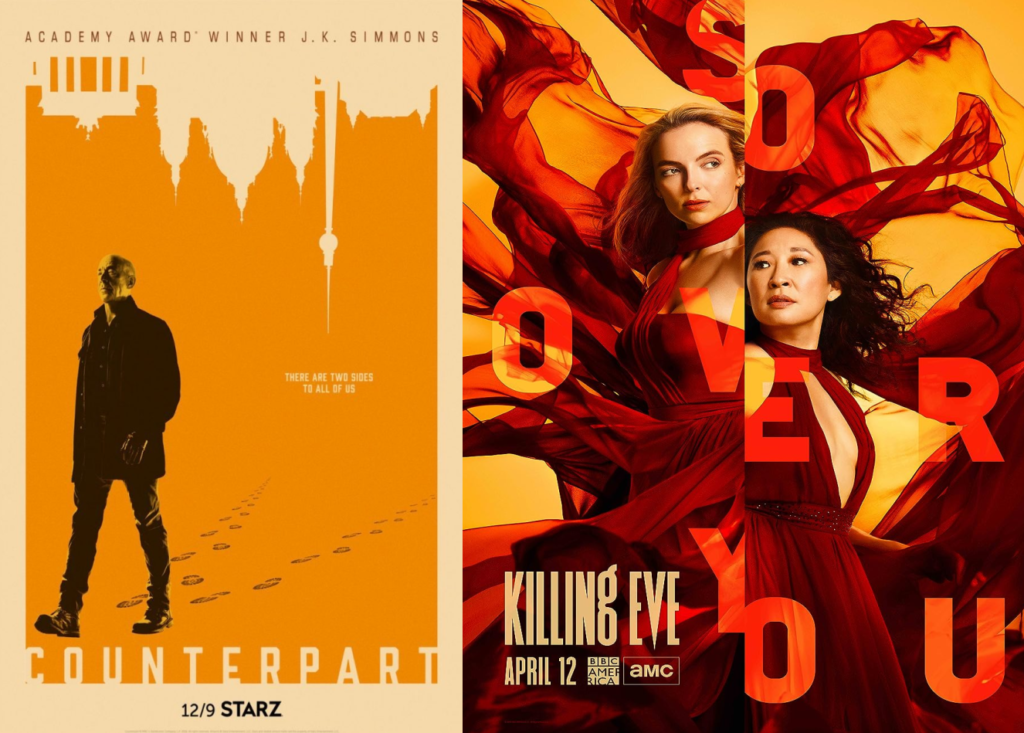
Overall, these are good times for aficionados of cool spy fiction. Even if you want something less concerned with geopolitics than with the escapist dimension of accessing a secret underworld operating in the shadows of our mundane life, there is plenty to choose from. Those that lean towards sci-fi can enjoy intelligent hybrids thanks to the likes of Counterpart (what I wouldn’t give for a third season…) or even Andor. For those who prefer a more playful tone, there’s the mellow indie romcom Mr. & Mrs. Smith (2024), not to mention the twisted cat-and-mouse games of Killing Eve (2018-2022).
The latter, about an obsessive hunt across Europe for a psychopathic hitwoman, had a steady supply of neat needle drops and stylish directorial choices (like the intense dance floor attack in the third episode or the tracking shot at the beginning of season 2) to go along with the zippy writing. The result was so darkly funny – and, sure, sometimes just plain dark – that it’s no wonder the initial showrunner Phoebe Waller-Bridge was hired to polish the script for No Time to Die (that film is quite a mixed bag, but you can sense Waller-Bridge’s mark in the very fun sequence in Cuba).
In this regard, last year’s Citadel is probably the one that took things farthest. This is as superficial a genre piece as you are likely to find, following ultra-secret agencies (for whom the CIA and the MI6 are ‘minor leagues’) involved in a shadow war that has shaped modern human history, which we get to uncover through the eyes of an amnesiac super-agent forced back in the game. The show feels like what would happen if you gave a very generous budget to a screenwriter whose whole only knowledge of the world came from Bond, Bourne and M:I movies… In fact, it covers pretty much the same ground and plot shenanigans as the recent film comedy Argyle, but whereas there the stale, broad humor was loudly telegraphed and insultingly hammered home at every turn (except for a bit of inspired lunacy towards the end), Citadel isn’t necessarily pitched to the lowest common denominator… For every piece of dialogue that resembles a placeholder, there are enough moments when the show seems to be giddily testing how far it can push its circuitous narrative, demanding attention rather than mere recognition.

I don’t mind the derivative aspects, which Citadel pulls off with gusto, bombarding us with high-pitched action (especially John Woo-ish gun fu), quippy exchanges (full of f-boms, giving it an even more adolescent flair), and an extra twist always waiting around the corner. Compared to any of the other shows I mentioned, however, there is very little to hold on to in terms of emotionally engaging characterization or any connection at all to the outside world… The agents’ globetrotting adventures take them from one postcard location to the next, but they are so removed from actual ideologies or international affairs that the whole thing becomes quite abstract, as if emptying espionage of everything except for pulpy thrills. The result is pure, trashy, disposable fun.
It’s exactly the sort of breezy take on super-spies you can find in Dynamite’s James Bond 007 comics, including the recent books written by Philip Kennedy Johnson (which strongly benefit from the nifty colors of Dearbhla Kelly, Francesco Segala, and Claudia Giulani):
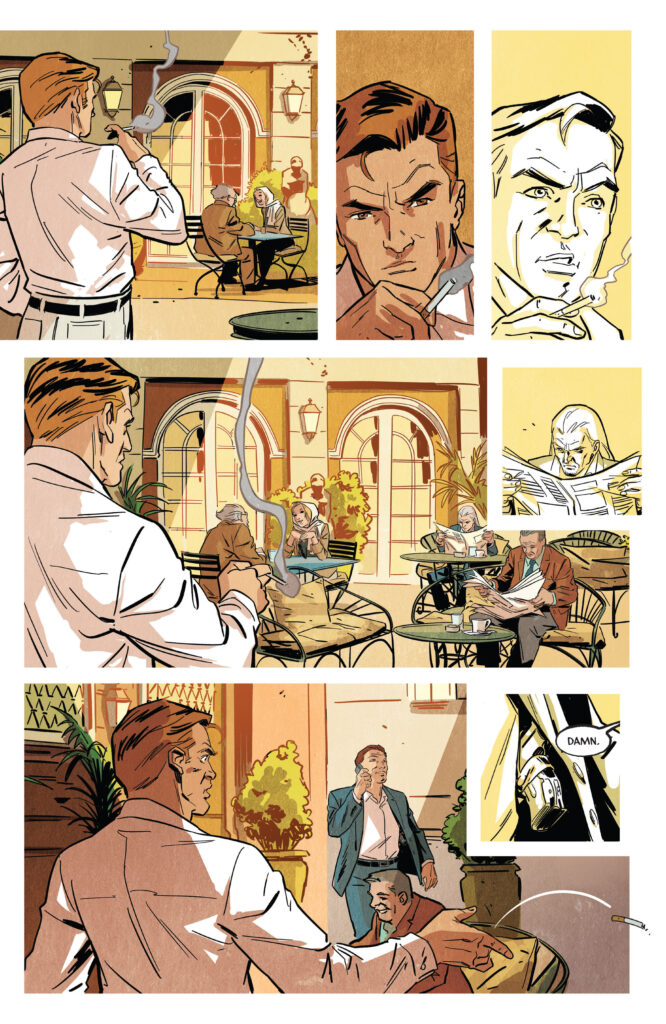
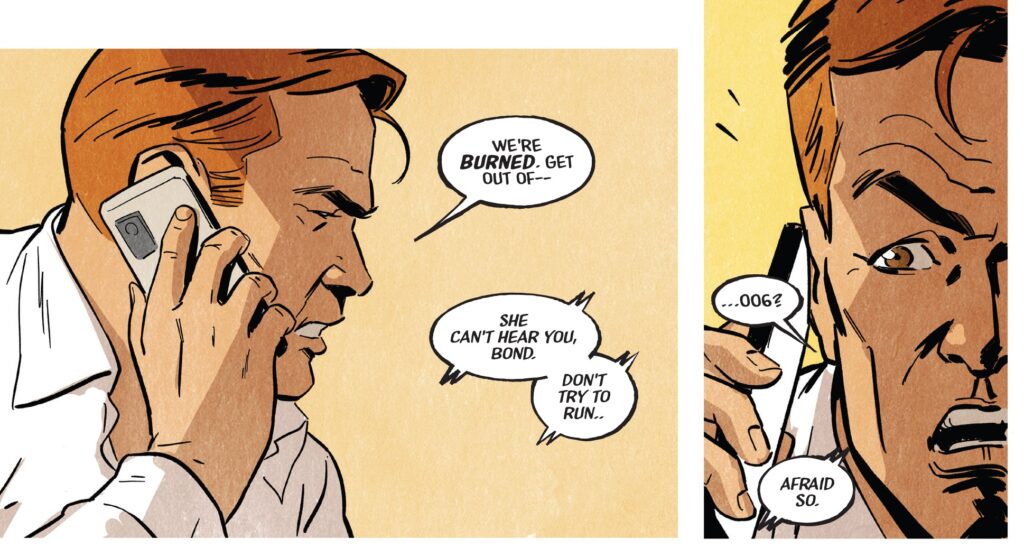
James Bond 007 – For King and Country #2
